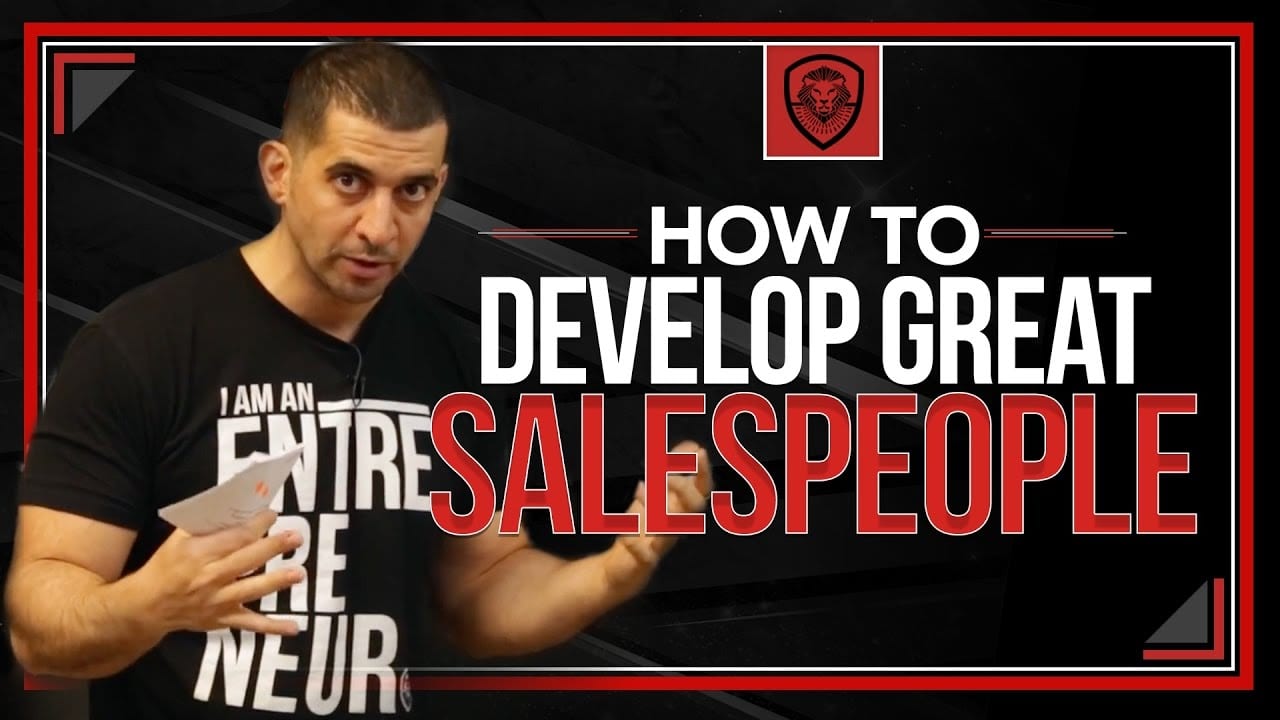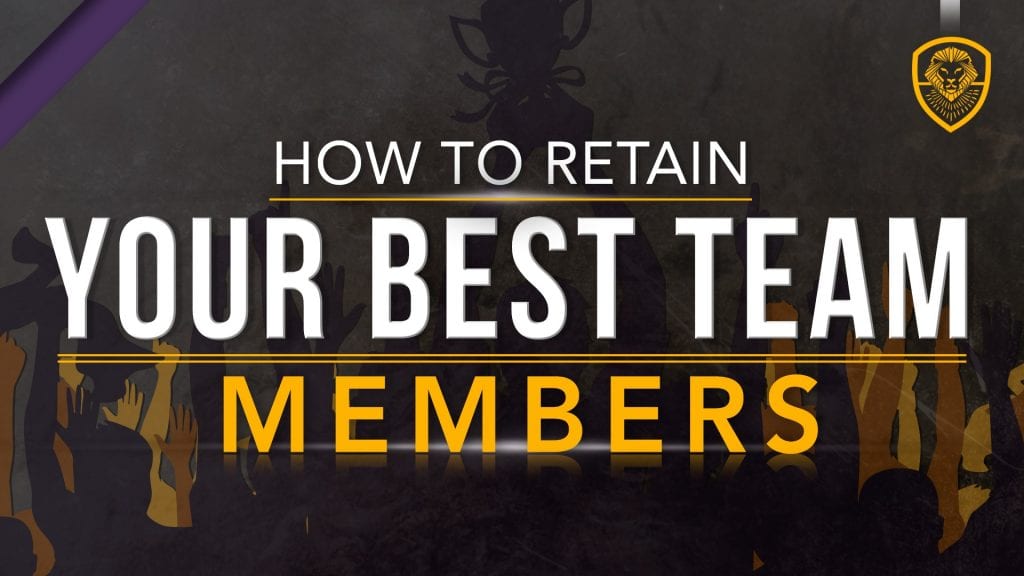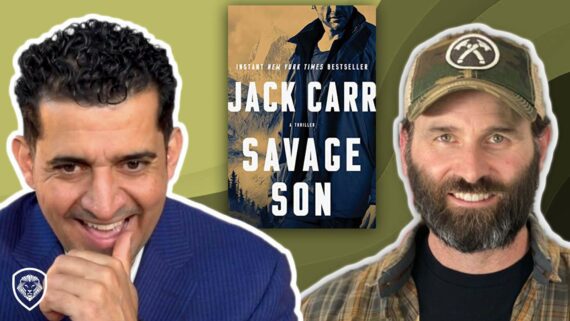One of the best relationship books out there that I think everybody ought to read is The 5 Love Languages by Gary Chapman. It’s phenomenal. The five love languages he talks about are : Quality Time, Words of Affirmation (saying nice things), Gifts, Acts of Service, and Physical Touch.
[thrive_leads id=’7165′]
Just like there are five love languages in a relationship, there are nine love languages that great entrepreneurs learn how to speak with their teammates. I cover that in this video.
#1: We Need You
In sports, a coach may go to a player who isn’t performing and say, “We can’t win a championship without you. We need you to come through. We NEED you.” There are people who need to feel needed.
There are also people who don’t care to be needed. For those, the more they feel needed, the more they may abuse the relationship. They may say, “Oh, you need me. Without me you can’t do anything.”
The point isn’t that we can’t do anything without a particular person, but a great team is about everybody pulling their own weight, so we need you to step up. We need you to improve. The mature leaders respond to that.
Giving people responsibility is one way to show them that you need them. You can say things like, “I need you to help me out with this.”
Steve Kerr, coach of Golden State Warriors, who won a championship last year got Andre Iguodala who is an absolute all-star to come off the bench. He said, “I need you to come off the bench and play strong defense. I need you. The team needs you.” He did that and went into the finals MVP.
#2: Recognition
In most corporate jobs, there is no real recognition. If you look at companies that are stagnant, you will generally see that recognition sucks at that company. It’s all about pressure, pressure, pressure. There’s no recognition to make people feel special about the efforts they’re putting in.
You can have a lot of fun with entrepreneurs that speak this language. When you recognize someone, add your own personal touch. For example, one time I got a 1984 Olympic torch for one of our senior vice-presidents, Jason. I gave an Ayrton Senna helmet to one of our buddies, Matt. It could be signed Michael Jordan shoes. It could be a custom Louis Vuitton bag. A lot of times it may be a plaque. One time we did nine exotic cars.
There are three different ways to recognize someone:
Privately
Privately is typically a mature leadership item that’s taking place that may look something like this: “Listen, I just want you to know that you’ve grown a lot. I certainly hope this doesn’t change. But I want to recognize you. I see what you’re doing to improve and the way you’ve been improving. Thank you.”
Publicly
Publicly is in front of everybody. “Hey, great job, he’s the team member of the month. He did a phenomenal job.”
Behind their Back
You recognize people behind their backs when you praise them in front of others, when they’re not present.
Nothing is more exciting than recognition. Recognition means a lot; we need it. Believe it or not, you need it. Some people may say, “I don’t need any recognition.” But the ones who say they don’t need it need it more than most. I don’t care how confident a person is, everybody needs recognition.
#3: Praise and Encouragement
Listen in here for my thoughts on the importance of praise and encouragement, and when you should not praise people.
#4: Clear Direction
Your team needs clear direction from you. When you say things like, “You can do it. Go get it,” it’s not effective. They need you to say, “I need you to do this, this, and this by this time. Can you do that?”
Typically, you don’t want to give people more than a list of three things to do at a time or they’ll be overwhelmed.
#5: Vision
Most people are not visionaries. But they need to hear you talk about vision and the future. Great leaders are always selling the future on where we’re going and what things are going to happen. They talk about what’s next. What’s exciting about a year from now, five years from now, ten, 15, 20 years from now.
Great presidents do this as well. They’ll talk about how America has an incredible future and how the greatest days are not behind us, but ahead of us.
#6: Dream
Listen in here to hear about the importance of dreams, and how dreams are different from vision.
#7: Involvement
Constantly ask people their opinion and for feedback. Constantly ask people what they think you need to do next. Ask things such as, “What are your thoughts on this?”
People want to be involved in what you’re doing and they want to be heard. If you ask people for their ideas and you never implement them, they will feel like, “Why do I even give them to you? You never do them anyways.”
#8: Challenging Someone
Great leaders challenge people all the time, privately, publicly and behind their backs.
If I have somebody that I see is making progress, I’m going to pull them aside and say, “Listen, I want to let you know that I see it. You’re making a lot of progress. I’m excited for you. But I hope you don’t slip again. I hope you stay focused.”
Then publicly may be “Hey, since when have we thought we’re already there? Since when are we walking on just because you guys made $50,000 last month or $100,000 last month or $30,000 last month? Since when are you financially free already? Since when are we there already? Why are we behaving this way? Why are we acting this way? Why are we doing this?”
And then, behind people’s back. I have no problem with a leader saying, “I don’t know what’s been happening. One day he’s in, one day he’s out. I hope he improves.”
Phil Jackson was famous for this, Riley was famous for this, Belichick is famous for this, Wooden was famous for this. Great coaches are famous for this. Great parents are famous for this. Great leaders are famous for this. Great generals are famous for this. Why? Because it shows that nobody is greater than the team. We all need to pull our weight. We all need to do our part. The show doesn’t revolve around just one player. It doesn’t work out that way. We’re a team.
By the way, most people think, “I don’t want to challenge because people don’t like it.” They look at you like they don’t like it. They walk away but when they’re in their car by themselves, this is what they say, “He’s a leader. She’s a leader. That’s why I follow them. I can’t stand them sometimes. But that’s why he’s a leader.”
#9: Listening
The last language is actually not a language. The last language is when you just zip your mouth and you simply listen. This is not easy, but listening is a very, very big skill set. Sometimes it’s just sitting there and hearing a person out. Some of the leaders I’m mentoring just want to call and talk for 40 minutes. I let them. I listen, listen, listen, and take notes. I give them feedback. I don’t get on the call and put them on mute and do other things. I’m listening and I’ll say, “About that thing you said about 15 minutes ago, what do you think about this?”
You need to listen and show genuine interest. In fact, with all of these love languages for entrepreneurs, you need to be genuine. If you’re not genuine, if you’re just putting on an act, people can tell.
We Need Your Help
We have a goal of getting to 100,000 subscribers by August 31st. If you’re not already subscribed, click on the button below to subscribe. And be sure to invite your peers to subscribe as well. And if you have any comments or questions about this post, leave the below.
[button content=”Subscribe to my YouTube channel” color=”red” text=”white” url=”http://www.youtube.com/subscription_center?add_user=patrickbetdavid” openin=”_blank”]







